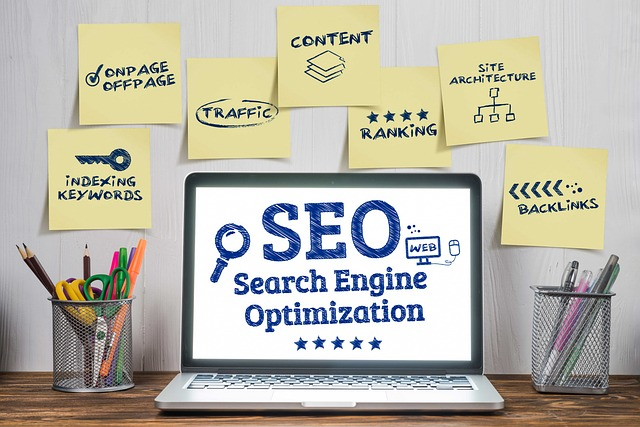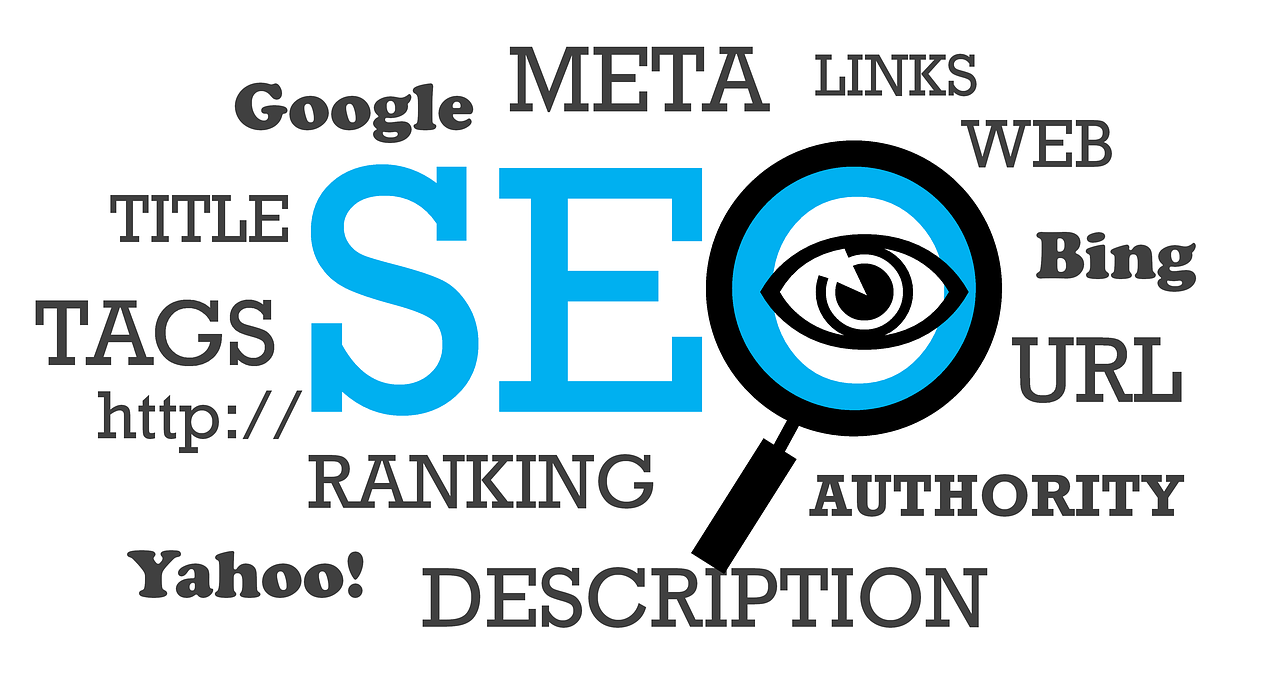Ultimate Guide to Local SEO for Real Estate Agents
Did you know that mastering local SEO can be a game-changer for real estate agents? With the majority of property searches starting online, it’s essential to have a strong online presence that captures the attention of potential clients in your local market. In this comprehensive guide, we’ll dive deep into the world of local SEO for real estate agents. We will explore strategies and tips to help you stand out from the competition and attract more leads.
From optimizing your Google Business Profile to creating local content, we’ll discuss the key components of a successful real estate SEO strategy and provide actionable insights to help you climb the local search rankings. Ready to unlock the true potential of local SEO for your real estate business? Let’s get started!
Key Takeaways
Local SEO is essential for a real estate agent to attract local clients, increase visibility in search results and build online reputation.
Strategies include optimizing a website, establishing a Google Business Profile, performing keyword research and optimization, building local citations and creating content.
Measuring success requires tracking tools such as Google Analytics and KPIs to set benchmarks & monitor performance over time.
The Importance of Local SEO for Real Estate

Attracting local clients and boosting your visibility in local search results is made possible through effective local SEO. Given that the majority of home buyers commence their property search online, a strong online presence becomes a prerequisite for a real estate agent. A focus on local SEO facilitates higher rankings for your real estate website in search engine results pages (SERPs). This, consequently, leads to an increase in leads, sales, and improved search engine placements.
One of the key components of real estate SEO is optimizing your website for both on-site and off-site SEO tactics. On-site SEO involves incorporating your business’s Name, Address, and Phone number (NAP) throughout your website. Use local keywords in title tags, meta descriptions, and body copy, and implement Schema local markup. Off-site SEO, on the other hand, involves building local citations, backlinks, and reviews on popular platforms like Google and other search engines.
In the real estate industry, your online reputation is everything. The real estate industry significantly relies on referrals. Hence, the necessity for agents to display online reviews as a recognition of their efforts. Having a fast-loading website, particularly on mobile devices, is crucial. Users expect webpages to load in less than three seconds or they will return to the search engine.
Targeting Local Clients
Local SEO is all about connecting with potential buyers and sellers in your local market. This increases the likelihood of closing deals. Establishing a strong online presence and attracting more local clients can be achieved by optimizing your website for local SEO and search engine optimization. Some of the steps you can take to optimize your website for local SEO include:
Setting up a Google Business Profile
Performing local keyword research and optimization
Building local citations
Networking with local businesses and organizations
Creating local content
Optimizing your website for local mobile searches
Defining key performance indicators (KPIs) and utilizing tracking tools for progress monitoring are vital to measuring the success of your local SEO efforts. By continually refining your local SEO strategy, you can ensure that your real estate business stays ahead of the competition and appeals to your target audience.
Increased Visibility in Local Search Results

Securing a high ranking in local search results can lead to potential leads. The top 1-3 organic positions generally attract the most traffic, making it critical for your real estate business. Local SEO can bolster your visibility in local search results by optimizing your online presence for specific geographic regions. This can aid your business in appearing in local search results like Google’s Map Pack, thus boosting the likelihood of being discovered by local customers.
For full utilization of the power of local SEO, optimizing your website’s meta titles and descriptions is key. These are succinct pieces of text appearing in search engine results, giving a concise overview of webpage content. A well-crafted meta description should be between 160 and 300 characters. This provides a compelling reason for users to click through to your website and learn more about your real estate services.
Improving Online Reputation
A strong local SEO strategy can help you improve your online reputation. A good reputation makes your real estate business more trustworthy and appealing to potential clients. Given the significant role reviews play in shaping your online reputation, proactively soliciting reviews on Google, Yelp, Facebook, and other relevant third-party review sites is necessary. Responding effectively to negative reviews can also help improve your online reputation. It demonstrates your commitment to customer satisfaction and willingness to address any issues.
Maintaining a positive online reputation and addressing client concerns requires monitoring and managing reviews on your Google Business Profile. By staying on top of your reviews and engaging with customers, you can build trust, foster loyalty, and ultimately boost your local SEO success.
Google Business Profile: A Key Component of Local SEO

Google Business Profile is a powerful tool that helps real estate agents create a strong online presence. It also draws in more local customers. Increasing local visibility and generating more sales for your real estate business can be achieved by:
Setting up and optimizing your Google Business Profile.
In the “From The Business” section of your profile, make sure to use the full 750 characters to provide an overview of your business and the services you offer.
Incorporate relevant keywords that your target audience is likely to use when searching in Google.
Setting up your Google Business Profile involves:
Providing accurate and up-to-date information about your real estate business, including contact details, location, and hours of operation.
Adding high-quality images.
Responding to reviews.
Updating your information regularly to improve your local search rankings.
Monitoring and managing reviews on your Google Business Profile is an integral part of maintaining a positive online reputation and addressing any client concerns. By staying on top of your reviews and engaging with customers, you can build trust, foster loyalty, and ultimately boost your local SEO success.
Setting Up Your Google Business Profile
Setting up a Google Business Profile involves providing accurate and up-to-date information about your real estate business. This includes contact details, location, and hours of operation. It’s essential to ensure that your business information is consistent across all online platforms. Inconsistencies can negatively impact your search engine rankings.
Setting up your Google Business Profile requires verification of your business through one of several methods. These methods include, postcard, phone, email, or video. Once verified, you can start optimizing your profile by including relevant information about your real estate services. These should include the business name, hours of operation, and high-quality photos. This will help improve your local search rankings and make it easier for potential clients to find and contact you.
Optimizing Your Google Business Profile
Improving your local search rankings involves optimizing your Google Business Profile by adding high-quality images, responding to reviews, and regularly updating your information. The recommended image size for Google Business Profile pictures is approximately 540 x 405 pixels, ensuring that your images are clear and professional.
When it comes to responding to negative reviews, it’s essential to:
Acknowledge the specific issues mentioned in the review
Remain calm and positive in your response
Apologize for any negative experiences the customer had
Offer to rectify the situation if necessary
By engaging with your customers and addressing their concerns, you can demonstrate your commitment to customer satisfaction and maintain a positive online reputation.
Monitoring and Managing Reviews

Positive reviews and high ratings on your Google Business Profile can enhance your business’s visibility and increase your chances of ranking higher in local search results, thereby having a significant impact on your local search rankings. To solicit reviews for your Google Business Profile, you can request referrals from past clients, provide detailed instructions on how to leave a review on Google, and create a process to consistently gather reviews.
When responding to reviews, it’s important to:
Acknowledge the customer’s experience
Express appreciation for their feedback, regardless of whether the review is positive or negative
Actively monitor and manage your reviews
Maintain a positive online reputation
Ensure that any issues are promptly addressed.
Local Keyword Research and Optimization
Creating content that appeals to local clients and ranks well in local search results necessitates local keyword research and optimization. By researching and identifying relevant local keywords, you can optimize your website content to target potential clients in your specific market and ultimately boost your search engine rankings.
Identifying local keywords involves researching terms and phrases that potential clients in your target market are likely to use when searching for real estate services. Some of the tools you can use to identify local keywords include:
Once you’ve identified relevant local keywords, you can incorporate them into your website content, meta tags, and URLs to improve your local search rankings.
Tracking your local keyword performance using tools like:
is indispensable in measuring the success of your local SEO efforts. By monitoring your keyword performance and making data-driven decisions, you can refine your local SEO strategy and ensure that your real estate business stays ahead of the competition.
Identifying Local Keywords
Identifying local keywords is a crucial step in optimizing your real estate website for local search. By researching and identifying relevant local keywords, you can create content that appeals to potential clients in your specific market and ultimately boost your search engine rankings. To identify local keywords for your real estate business, you can use tools such as:
Google Keyword Planner
Ubersuggest
AnswerThePublic
Ahrefs
SEMrush
Keywordtool
In addition to using keyword research tools, you can also explore top real estate keywords that are relevant to your local area and target audience. By focusing on both head keywords (1-2 words with high search volume) and body keywords (2-3 word phrases with decent search volume), you can optimize your website content to target potential clients in your specific market. Don’t forget to also consider long-tail keywords, which are specific to the real estate industry and your target audience.
Optimizing Content for Local Keywords
Once you’ve identified relevant local keywords, it’s time to optimize your website content to improve your local search rankings. Here are some ways to do that:
Incorporate local keywords into your website content, meta tags, and URLs
Ensure that your real estate website ranks well in search engine results pages (SERPs) for local queries
Attract more local clients and increase your online visibility
Incorporating local keywords in URLs for local SEO is essential. It can help improve the ranking of your website in search engine results pages (SERPs). By including relevant local keywords in your URLs, you signal to search engines that your website is pertinent to local searches. This can enhance your visibility to local customers and direct targeted traffic to your website.
Benefits of including local keywords in URLs for local SEO:
Improved website ranking in SERPs
Enhanced visibility to local customers
Increased targeted traffic to your website
Competitive edge in local search results
Cost-effective marketing strategy
Tracking Local Keyword Performance
Monitoring local keyword performance is essential for evaluating the success of your local SEO efforts and making any necessary adjustments to your strategy. By tracking your keyword performance using tools such as:
SmallSEOTools Rank Checker
Ahrefs
Moz
BrightLocal’s Local Rank Tracker
You can gain valuable insights into your local SEO performance and identify areas for improvement.
Regularly assessing your local keyword performance can help you refine your local SEO strategy. This ensures that your real estate business stays ahead of the competition. By staying on top of your keyword performance and making data-driven decisions, you can:
Optimize your website content
Improve your local search rankings
Attract more local clients
Boost your bottom line.
Local Link Building Strategies
Establishing authority in the market and improving local search rankings can be aided by local link building strategies for real estate agents. By networking with local businesses and organizations, building local citations, and creating local content, you can increase your online visibility and attract more local clients. In this section, we’ll explore various local link-building strategies and provide tips to help you boost your local SEO efforts.
Backlink building, one of the key components of real estate SEO, can aid in improving your search engine rankings. This drives more organic traffic to your website by generating high-quality backlinks from reputable websites. To ensure that your backlinks are relevant and of high quality, it’s essential to focus on obtaining backlinks from websites with strong domain authority and low spam scores.
Guest blogging is another effective local link-building strategy that involves contributing content to real estate podcasts or blogging platforms to generate relevant backlinks. By guest blogging on reputable websites within the real estate industry, you can establish authority in your market and boost your local search rankings.
Building Local Citations
Increasing your online visibility can be achieved by building local citations. This involves listing your real estate business on relevant local directories, websites, and social media platforms. By creating local citations, you can improve your local search rankings and make it easier for potential clients to find and contact you. Some of the most beneficial local directories for real estate businesses include Zillow, Realtor.com, Trulia, LoopNet, Movoto, Landwatch, Redfin, Homes.com, Apartment Finder, and Estately, which all feature real estate listings.
To create local citations, you can start by submitting your business information to these directories, ensuring that your Name, Address, and Phone number (NAP) are consistent across all platforms. This consistency is crucial, as it can help improve your search engine rankings and make it easier for potential clients to find and contact you. Additionally, you can network with local businesses and organizations to gain valuable backlinks and partnerships that can further boost your local SEO efforts.
Networking with Local Businesses and Organizations
Boosting your local SEO efforts can be facilitated by networking with local businesses and organizations, leading to valuable backlinks and partnerships. By connecting with local organizations such as:
Real estate associations
Chambers of commerce
Local business networking groups
Community organizations
You can increase your online visibility and improve your local search rankings with Google Ads.
When approaching local businesses for SEO partnerships, it’s important to:
Optimize your Google My Business profile and engage on social media
Incorporate local link building into your SEO strategy
Ensure your local listings are accurate
Conduct thorough keyword research to discover relevant keywords and phrases
Implement local SEO best practices, such as claiming your Google My Business page.
By forming strong relationships with local businesses and organizations, you can create a network of valuable partners that can help you succeed in your local market.
Creating Local Content
Creating local content, such as blog posts and videos about the local real estate market, can attract local clients and improve your search rankings. By focusing on content that is relevant to your local area and target audience, you can create a sense of community on your real estate website and ultimately drive more traffic and potential clients to your business.
To create local content, start by researching topics relevant to the local area, such as market trends, local events, and neighborhood insights. Then, craft content tailored to the needs of local customers, such as case studies, client testimonials, and product or service pages. By optimizing your content for local keywords and providing valuable information to your local audience, you can improve your local search rankings and attract more local clients.
Optimizing Real Estate Website for Local Mobile Searches

Given that the majority of property searches are now conducted on mobile devices, the importance of optimizing your real estate website for local mobile searches has never been more paramount. By ensuring that your website looks and functions well on all devices, including smartphones and tablets, you can provide a seamless user experience and increase the chances of converting visitors into clients.
Optimizing your real estate website for mobile users involves implementing responsive design, ensuring fast load times, and providing easy navigation. By focusing on these key elements, you can create a mobile-friendly website that appeals to potential clients and improves your local search rankings.
To further optimize your website for mobile users, it’s important to stay on top of any technical issues that may be affecting your website’s visibility. This can include:
Monitoring your local keyword performance
Checking for broken links
Using tracking tools such as Google Analytics and Google Search Console to gain valuable insights into your local SEO performance.
To learn more about creating a real estate website, see our blog: https://www.quickcommissionadvance.com/blog/a-comprehensive-guide-to-creating-a-real-estate-website-in-2023/
Responsive Design
The web design approach of responsive design guarantees a consistent user experience across all devices, including smartphones and tablets. By implementing responsive design, you can ensure that your real estate website looks and functions well on all devices, providing a seamless browsing experience for your potential clients.
When designing a responsive real estate website, it’s important to focus on the following elements:
Consistency
Compatibility
Whitespace
Intuitive navigation
Optimized images
By incorporating these elements into your website design, you can create a mobile-friendly website that appeals to your target audience and improves your local search rankings.
Fast Load Times
Crucial for engaging mobile users and reducing bounce rates, fast load times can prevent a negative impact on your local search rankings. A slow-loading website can frustrate potential clients and lead them to abandon your site in favor of a competitor’s. To ensure fast load times, it’s essential to optimize your website’s performance by addressing any technical issues that may be causing delays.
There are several tools available to measure your website’s load time and provide a comprehensive analysis of any issues that may be affecting its performance. Some of these tools include:
By addressing these issues and implementing strategies to improve your website’s load time, you can provide a seamless user experience for mobile visitors and improve your local search rankings.
Easy Navigation
Easy navigation is key to providing a user-friendly experience on your real estate website, especially for mobile users. By designing a clear and intuitive navigation menu or structure, you can make it easy for visitors to find and access different pages and information on your website, resulting in a more efficient and enjoyable browsing experience.
Some strategies for designing easy navigation in a real estate website include creating a logical hierarchy with clear categories, using descriptive labels for menu items, and providing easily accessible search functionality. By focusing on these elements, you can help potential clients quickly find the information they need and increase the chances of converting them into clients.
Measuring Local SEO Success

Defining key performance indicators (KPIs) and utilizing tracking tools for progress monitoring and making data-driven decisions are pivotal in measuring local SEO success. By setting clear KPIs, such as organic traffic, local search rankings, and conversion rates, you can establish a benchmark for success and track the effectiveness of your local SEO efforts over time.
Tools such as Google Analytics, Google Search Console, and Google Lighthouse can provide valuable insights into your local SEO performance and help you identify areas for improvement. By regularly monitoring your website’s performance and making data-driven decisions, you can refine your local SEO strategy and ensure that your real estate business stays ahead of the competition.
Defining local SEO KPIs early in the process is essential for setting clear goals and measuring the success of your local SEO efforts. By tracking your local keyword performance using tools such as:
SmallSEOTools Rank Checker
Ahrefs
Moz
BrightLocal’s Local Rank Tracker
You can gain valuable insights into your local SEO performance and identify areas for improvement.
Defining Local SEO KPIs
Defining local SEO KPIs can help you set goals and measure the success of your local SEO efforts. Some important KPIs to consider include:
Organic traffic: This measures the number of visitors to your website from search engines.
Local search rankings: This measures how well your website ranks in local search results.
Conversion rates: This measures the percentage of visitors who take a desired action on your website, such as making a purchase or filling out a contact form.
By establishing clear KPIs, you can monitor your website’s performance, track the effectiveness of your local SEO strategy, and make data-driven decisions to improve your local search rankings.
Some examples of local SEO KPIs include website traffic, leads generated, and conversions. Monitoring these KPIs can help you identify trends and patterns in your local SEO performance, allowing you to make informed decisions about how to optimize your website and marketing strategy for the best results.
Tracking Tools
Tracking tools, such as Google Analytics and Google Search Console, provide valuable insights into your local SEO performance and help you identify areas for improvement. Google Analytics can provide insights such as website traffic, user demographics, engagement metrics, and conversion tracking, while Google Search Console can help you monitor your website’s performance in Google search results and identify any technical issues that may be affecting its visibility.
By regularly monitoring your website’s performance using these tracking tools, you can:
Stay on top of any issues that may be affecting your local SEO efforts
Make data-driven decisions to improve your local search rankings
Keep a close eye on your local keyword performance
Check for broken links
Use tracking tools such as Google Analytics and Google Search Console
These steps can help you refine your local SEO strategy and ensure that your real estate business stays ahead of the competition by implementing real estate SEO tips.
Summary
In conclusion, local SEO is an essential component of a successful real estate marketing strategy. By optimizing your website for local search, building local citations and backlinks, creating local content, and monitoring your local SEO performance, you can improve your search engine rankings, attract more local clients, and ultimately boost your bottom line.
Remember, the key to local SEO success lies in staying up-to-date with the latest trends. Continually refine your strategy, and make data-driven decisions to optimize your website and marketing efforts. With dedication and the right approach, you can master local SEO for your real estate business. You can be the one to stand out from the competition.
Frequently Asked Questions

How to use SEO in real estate?
Boost your real estate business with a comprehensive SEO checklist. Analyze competitors, research keywords, create quality content, and prioritize crawling and indexing issues to gain maximum visibility.
Does SEO work for realtors?
SEO absolutely works for realtors! Optimizing websites and online listings for relevant keywords ensures visibility in search results when potential clients are looking. Optimizing on-page, off-page, and technical SEO is critical to successful digital marketing.
How much does SEO for real estate cost?
SEO for real estate generally costs between $400-$5,000 per month, depending on the size and scope of the project. Small-scale SEO packages start at $400, while comprehensive local SEO services can cost as much as $4,000 a month. Large projects can range from $1,500-$5,000 per month.
Is doing a local SEO worth it?
Local SEO brings numerous benefits, such as better online visibility, higher qualified traffic and increased foot traffic to your business. Therefore, doing local SEO is definitely worth it.
What are the key components of a successful real estate SEO strategy?
There are three key components of a successful real estate SEO strategy are optimizing your website for local search. They are: building local citations and backlinks, creating local content, and monitoring local SEO performance.







